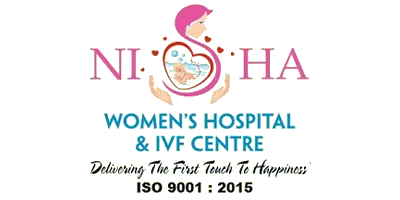Menopause at 30: Understanding the Journey of Premature Menopause
Menopause is a natural phase in a woman’s life, typically occurring around the age of 50, marking the end of menstrual cycles and fertility. It’s a significant chapter, often signaling new transitions in health and lifestyle. However, for some women, this transition begins much earlier— sometimes as early as 30. Menopause at 30 is often referred to as premature menopause. For many, it can be a shock, affecting emotional and physical well-being. Globally, about 1% of women experience premature menopause, facing symptoms and health risks usually associated with later years.
According to Dr. Himali Maniar, a distinguished gynecologist from Nisha Women’s Hospital in South Bopal, Ahmedabad:
“Menopause at 30 can feel overwhelming because it’s unexpected, but it’s important to know that you are not alone. With proper care and understanding, women can manage their health and live vibrant lives.”
CONTACT US FOR MORE INFORMATION OR BOOK AN APPOINTMENT
Does early menopause sound like something you’re facing? Let’s explore its signs, causes, and management techniques in more detail.
Signs and Symptoms of Menopause at 30
Irregular Periods: Your menstrual cycle becomes inconsistent or stops altogether.
Hot Flashes: Sudden warmth or heat in your face, neck, and chest, often accompanied by sweating. Many women report having hot flashes at 30, which can be a clear sign of menopause.
Night Sweats: Experiencing excessive sweating during the night, also called night sweats, before a period in your 30s.
Vaginal Dryness: Reduced estrogen levels can cause dryness and discomfort.
Mood Swings: Hormonal fluctuations can lead to irritability, anxiety, or depression.
Decreased Libido: A lowered sex drive can be a direct result of hormonal changes.
Fatigue: Feeling tired or lacking energy, even after a good night’s sleep.
Sleep Disturbances: Difficulty falling or staying asleep, often caused by night sweats or hot flashes.
Memory Issues: Some women experience forgetfulness or difficulty concentrating.
Weight Gain: Hormonal shifts can lead to weight gain, especially around the abdomen.
Are these symptoms familiar? If so, consulting a qualified gynecologist can provide clarity and guidance on managing them effectively.
Causes of Menopause at 30
Genetics: If your mother or a close relative underwent early menopause, you could be more likely to go through menopause at 30.
Autoimmune Diseases: Conditions like lupus or rheumatoid arthritis can lead to the immune system attacking the ovaries, resulting in early menopause.
Cancer Treatments: Radiation or chemotherapy can damage the ovaries, leading to premature menopause.
Chromosomal Abnormalities: Conditions like Turner syndrome or Fragile X can lead to early menopause.
Surgery: Surgical removal of the ovaries or damage to the reproductive system can induce early menopause.
Dr. Himali Maniar, an accomplished gynecologist in Ahmedabad, says:
“It’s essential to identify the underlying cause of early menopause because it often shapes the treatment approach. Women experiencing hot flashes in their 30s should pay attention to these symptoms and seek medical advice early.”
Impact of Early Menopause on Health

Bone Health: Decreased estrogen increases the risk of osteoporosis, causing bones to become brittle and more prone to fractures.
Heart Health: Estrogen has a protective effect on the heart, so early menopause may raise the risk of cardiovascular diseases like heart attacks or strokes.
Mental Health: The emotional strain of going through menopause at 30, combined with physical symptoms, can lead to depression, anxiety, or mood disorders.
Sexual Health: Early menopause can cause vaginal dryness, discomfort during sex, and a reduced libido, impacting intimate relationships.
Concerned about the health effects of early menopause? Schedule a consultation with a qualified gynecologist to understand better and manage your health.
Managing Early Menopause

Hormone Replacement Therapy (HRT): The most common treatment, HRT helps to replace the hormones your body is no longer producing, reducing symptoms like hot flashes and preventing osteoporosis.
Lifestyle Changes: Incorporating a balanced diet rich in calcium and vitamin D, regular exercise, and avoiding smoking can help maintain bone health and reduce heart disease risk.
Vaginal Estrogen: For women experiencing vaginal dryness, localized estrogen therapy can alleviate discomfort and improve sexual health.
Antidepressants: For women facing mood swings, anxiety, or depression, antidepressants may be recommended to stabilize mental health.
How to Cope with Early Menopause
Coping with premature menopause at 30 is not just about medical treatment; it’s about embracing a new phase of life with confidence and resilience. Here are a few ways to manage:
Seek Support: Whether through support groups or talking to friends and family, having someone to share your experiences with can make a big difference.
Prioritize Self-Care: Focus on getting enough sleep, managing stress, and nurturing your mental health through activities like meditation or yoga.
Stay Informed: Educate yourself about menopause and what to expect. Knowledge can be empowering.
Maintain a Healthy Lifestyle: Diet and exercise significantly manage symptoms and reduce risks associated with early menopause.
Take Away
Dr. Himali Maniar, a trusted gynecologist in Ahmedabad, concludes:
“Early menopause, especially menopause at 30, may be challenging, but it’s a journey you can manage with the right support and treatment. Empowering yourself with knowledge and staying connected with your healthcare provider will guide you through this phase of life.”
Let’s address some common concerns about premature menopause!
Frequently Asked Questions
Is early menopause genetic?
How is early menopause diagnosed?
Does early menopause increase health risks?
Can lifestyle changes delay the onset of early menopause?
How does early menopause affect mental health?
Is there any long-term health consideration of early menopause?
Can I reverse menopause at 30?
Disclaimer: The information shared in this content is for educational purposes only and not for promotional use.
Reference Links:
https://www.womenshealth.gov/menopause/early-or-premature-menopause



